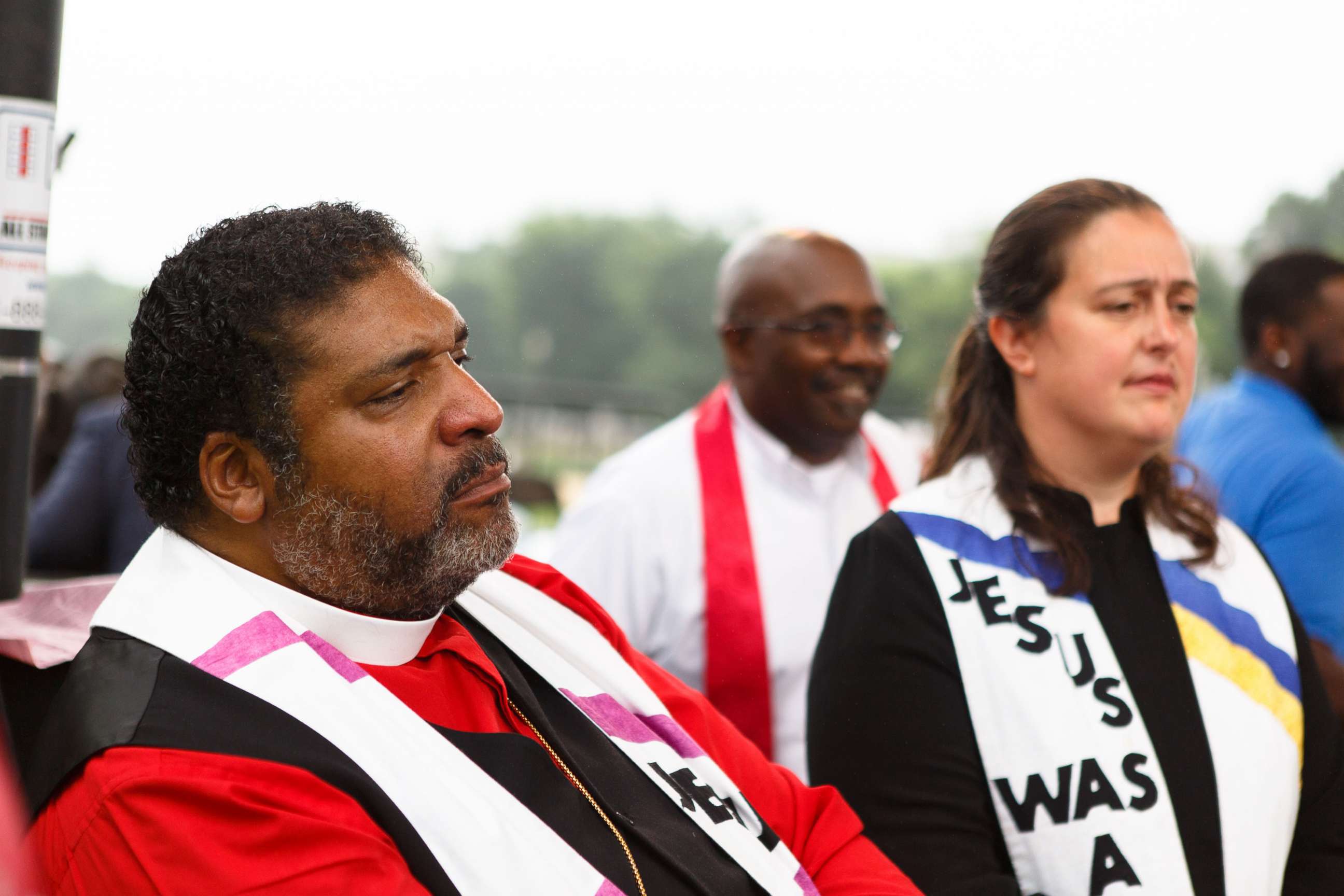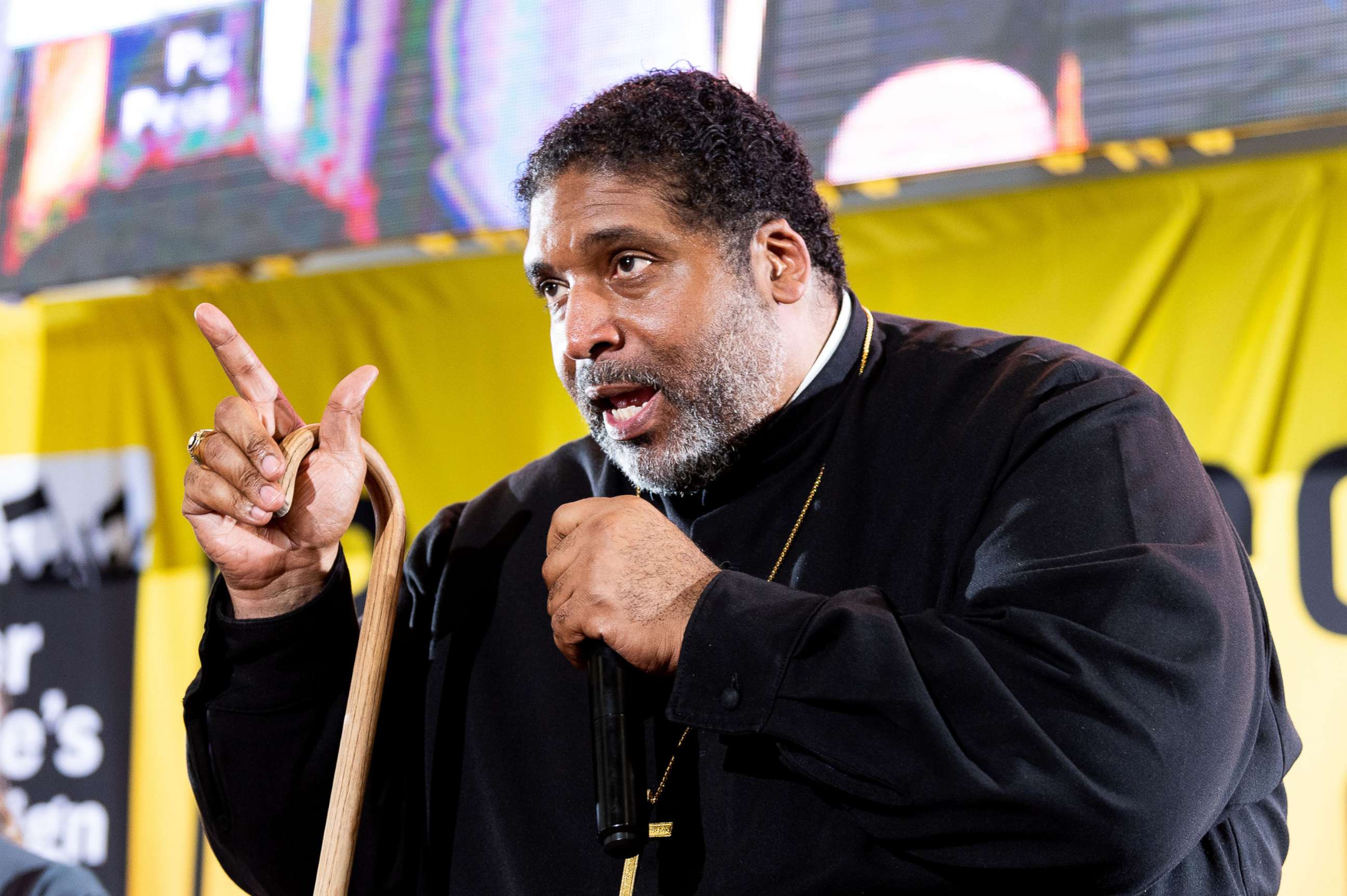Rushed reopening US comes at 'expense of poor and low-income working people': Reverend Dr. William Barber says
It's a false choice to "open up, or go to work and possibly die," he said.
In an interview with ABC Nightline Co-Anchor Byron Pitts, Reverend Dr. William Barber, co-chairman of The Poor People’s Campaign said that the reopening of the country due to the coronavirus pandemic too soon will be at the expense of poor and low-income working people.
“We’re opening too soon at the expense of poor and low-income working people, and at the expense of the American public. This false choice, that you have to either open up, or go to work and possibly die, is a choice, it didn’t have to be this way,” Barber said.

Testing and contact tracing have long been keys to a proper reopening experts say, but Barber said those prerequisites for members of society, as well as provisions for adequate protective personnel equipment, have not been met.
“The issue is to open up properly, and properly means we would’ve made sure that people have health care, made sure that we have testing, made sure that we did the tracking, made sure that we have the PPEs that are necessary. Made sure that people have the kind of protections for rent forgiveness and to maintain their waters, but we’ve not done any of that.”
Barber said some low-wage workers feel they are being forced to work for their livelihoods when they should not have to.
“As one low-wage worker said, it feels like we’re being led to what is called policy mass murder. Because we are being forced to go into work for our livelihoods when we should not have to do that.”
This report is part of "Pandemic – A Nation Divided," ABC News' special coverage of the heightened racial/ethnic and socioeconomic disparities amid the COVID-19 pandemic. Tune into "Nightline" for the last of a three-day series this week, 12 a.m. ET on ABC.
In rural areas of the country, there has been a history of conditions that make it difficult for those of low income and working class to receive the necessary tools to survive.
“We have not provided what is necessary for working class people, for poor and low income, low wage workers. We call them essential workers as their title, but many of them feel more expendable,” Barber said.

When asked what America would learn from the coronavirus pandemic, Barber said he is hopeful but not too optimistic for what is ahead but in the country’s darkest moments people have come together and risen up.
“Well I’m a hopeful person, not too optimistic, because I know about the real evils of society. And when I look at history I know that in the darkest moments, the toughest moments, people have come together and people have risen up.”
Lastly, Barber said it would be a shame if America could not rebuild the economy and care for its citizens from the bottom up after the coronavirus pandemic.
“I would say very clearly to America, that if America can’t get it right in a pandemic that’s threatening all of mortality, if we can’t get it right in the midst of a pandemic that is showing you that one little germ can shut down the whole country and shut down the world, if we can’t get it right and rebuild this economy from the bottom up and care for people from the bottom up, then shame on us.”




